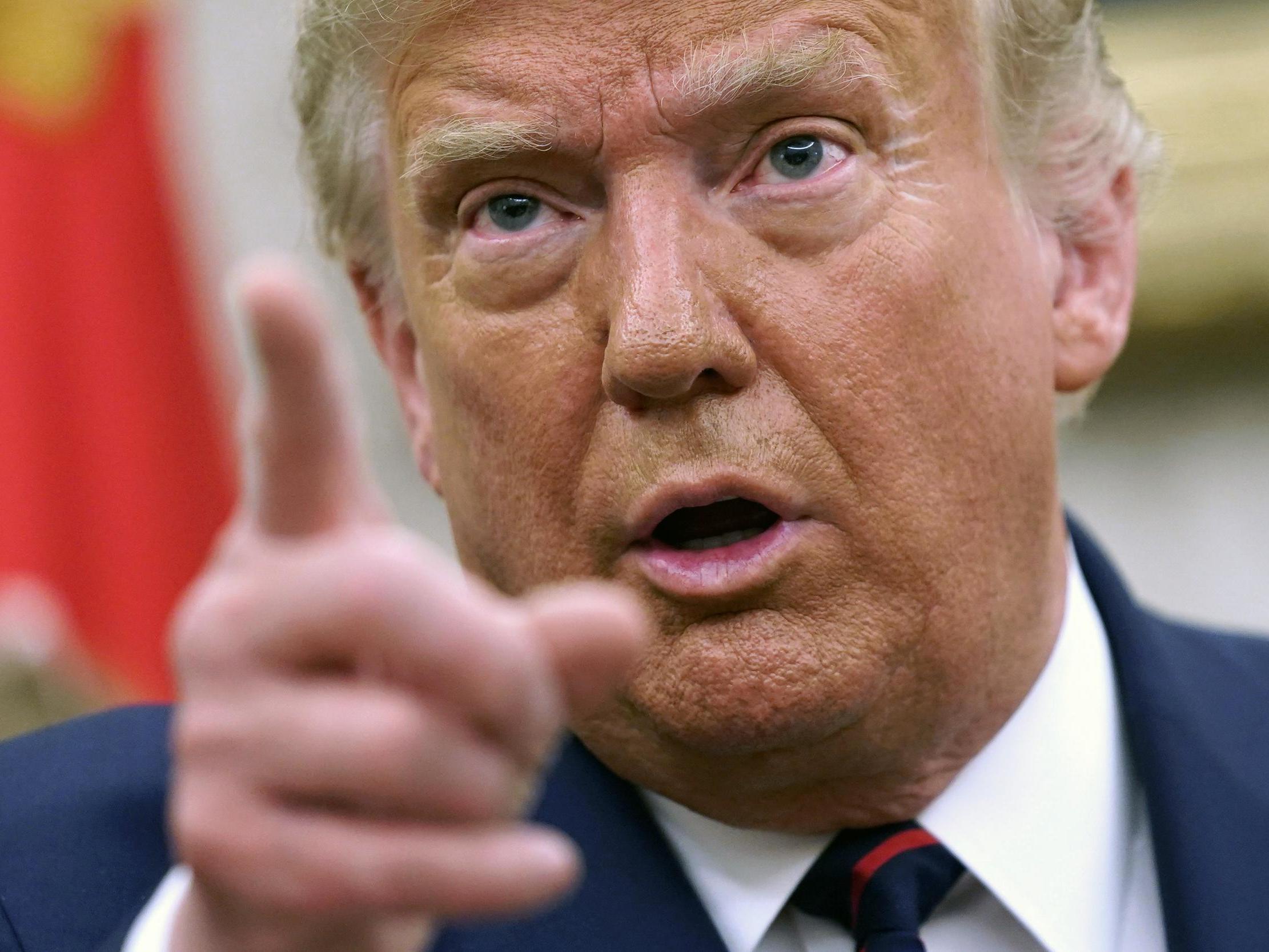The Independent's journalism is supported by our readers. When you purchase through links on our site, we may earn commission.
Trump petitions Supreme Court to let him block people on Twitter again
If Mr Trump's tweets are governmental speech, then his decision to block people should be treated the same way, acting solicitor general argues

President Donald trump has petitioned the supreme court to let him block people on Twitter again.
In 2018, it was ruled that Mr Trump cannot block other users on the social media app because the messages are “governmental in nature“ and therefore part of a public forum.
As such, blocking users “as a result of the political views they have expressed is impermissible under the First Amendment,” the judge ruled at the time.
While private companies are not usually bound by the First Amendment, the de facto nature of platforms like Twitter and Facebook as public spaces has made for difficult legislation with regards to government accounts.
The president’s petition – an 187 page document – argues that banning Mr Trump from blocking people is illogical because it only covers some parts of the Twitter account. If his posts are considered government speech, then so should his ability to block people from seeing them, the petition argues.
As such, blocking a user should be considered “an official refusal to consider respondents’ speech” that would also be allowable under the First Amendment, acting solicitor general Jeffrey B Wall wrote.
“President Trump’s ability to use the features of his personal Twitter account, including the blocking function, are independent of his presidential office. Blocking third-party accounts from interacting with the @realDonaldTrump account is a purely personal action that does not involve any “right or privilege created by the State,” it says.
The petition goes on to say that people blocked by the president are not incapable of viewing the president’s tweets, pointing out that all tweets from the account are visible when users are not logged in.
It also suggests that respondents can mention Mr Trump's personal account in their own tweets, and can post screenshots of the account alongside their tweets in response.
The lawsuit against Donald Trump’s twitter account was brought by The Knight First Amendment Institute at Columbia University acting on behalf of seven blocked users.
The case “stands for a principle that is fundamental to our democracy and basically synonymous with the First Amendment: government officials can’t exclude people from public forums simply because they disagree with their political views", said Jameel Jaffer, the Knight Institute’s executive director.
“The Supreme Court should reject the White House’s petition and leave the appeals court’s careful and well-reasoned decision in place,” Jaffer added, as reported by CNBC.
Donald Trump has attempted to take action to protect the perceived integrity of his Twitter account before. In response to the social media company adding fact-check labels to his tweets, Mr Trump signed an executive order that would mofidy Section 230, legislation which protects all websites from legal liability over content posted by users.
Join our commenting forum
Join thought-provoking conversations, follow other Independent readers and see their replies
Comments
Bookmark popover
Removed from bookmarks